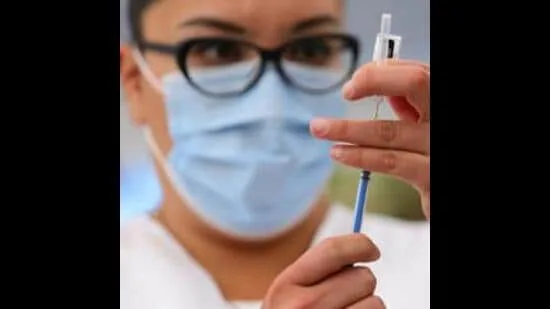Line listing is a medical term for data compilation that contains key information about each case in an outbreak of a disease; Punjab health director Dr Adarshpal Kaur said since October, AIIMS registered 29 patients and the number of black fungus cases at a Ludhiana hospital was 16.
Alarmed over a sudden surge in cases of mucormycosis or black fungus since October at All India Institute of Medical Sciences (AIIMS), Bathinda, the Punjab health department has started a line listing of the patients being treated for this rare but potentially fatal infection.

Line listing is a medical term for data compilation that contains key information about each case in an outbreak of a disease.
On November 9, HT had highlighted the spurt in black fungus cases at AIIMS, which is Punjab’s only black fungus care facility in the public sector.
Punjab health director Dr Adarshpal Kaur said since October, AIIMS registered 29 patients and the number of black fungus cases at a Ludhiana hospital was 16.
She said the department is monitoring the cases daily and the state teams are getting details of each of the patients treated for this fungal infection at AIIMS and Ludhiana-based Dayanand Medical College and Hospital (DMCH).
She said patients with black fungus were always there in Punjab and other states but during the peak of the second wave of Covid-19, there was a spurt in these cases.
“Surge in infection rate in May 2021 was attributed to the pandemic that affected immunocompromised patients. But these cases later subsided, and another spurt is a cause of concern and requires a study,” she said.
“Soon after the surge in black fungus cases was reported, the Union health authorities swung into action to control the situation. The Punjab health department is extending full support to the AIIMS as a sharp increase in the disease was quite serious. We are planning to send samples to the Post Graduate Institute of Medical Education and Research (PGIMER), Chandigarh, to ensure that there was no misdiagnosis,” she added.
“In all these cases, the patients are diabetic — having high blood sugar levels. Initial input says that most patients under treatment for the fungal infection are from Punjab and line listing will help further for analysis,” said the director.
Amphotericin injections being airlifted to Bathinda from Kolkata
Bathinda AIIMS executive director Dr DK Singh said the Centre noted the alarm raised by AIIMS. In-charge of AIIMS’s black fungus care facility Dr Vaibhav Saini said the Centre started airlifting costly Liposomal Amphotericin B injections to Bathinda from Kolkata via Chandigarh for free treatment to the patients of black fungus.
Saini said a consignment of 1,000 injections has already arrived while another stock of the same is expected within three days.
Treatment costs around ₹22-25 lakh
Average requirement of a patient varies between 70 and 100 vials and the maximum retail price (MRP) of the injections is about ₹5,400.
Doctors said the treatment of black fungus costs around ₹22-25 lakh as it requires expensive medication and a team of multispecialty surgeons.
“These injections are being administered free of cost to the patients,” said Saini.
ENT surgeon at AIIMS and nodal officer of the facility Dr Vikasdeep Gupta said diabetic people and those with compromised immune systems are vulnerable to the infection and they should not overlook possible early symptoms, including sinus pain or nasal blockage on one side of the face, one-sided headache, swelling or numbness, toothache and loosening of teeth. Physicians have an important role to play in timely diagnosing the fungal infection and referring patients to the institute for timely treatment.


